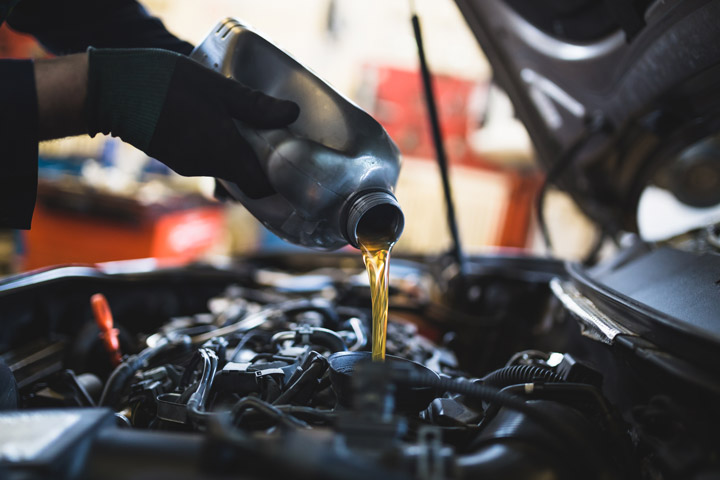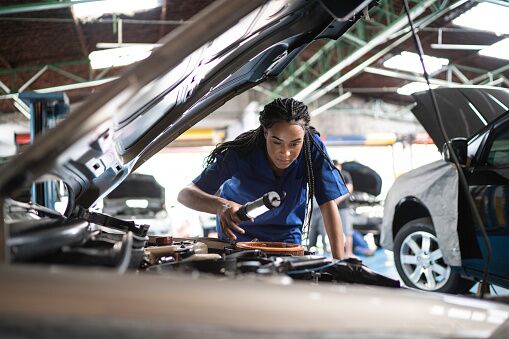All Categories
Featured

[/image]

When it comes to car maintenance, the brakes are probably the most important system for ensuring your safety. Regular brake inspections are crucial to maintaining your stopping system in leading condition.
- Why Brake Inspections Are Crucial. Brakes are made to use down gradually, however without regular inspections, you may not notice when they become much less effective. A defective brake system can bring about major accidents, raised repair work expenses, and also the demand to change other vehicle components.
Brake inspections not only help you capture prospective issues before they escalate, however they additionally enable better stopping efficiency, raised lorry life expectancy, and improved safety.
- Acknowledging Warning Indications for Brake Issues. While routine evaluations are necessary, you do not need to wait till your cars and truck's following check out to the technician. View for these warning indications that may show it's time for an evaluation:
Uncommon Sounds: A high-pitched screech or grinding sound when applying the brakes frequently signals that the brake pads are put on down or harmed. Soft or Mushy Brake Pedal: If the brake pedal really feels soft or spongy when pushed, there may be air or wetness in the brake lines, or the brake liquid might be low. Drawing away: If the lorry draws away while braking, it could suggest uneven brake pad wear or a hydraulic issue in the brake system. Resonance in the Steering Wheel or Pedal: If you experience resonance or pulsation when braking, it might suggest warped rotors or irregular brake pad wear. Enhanced Stopping Distance: If it takes longer than normal to bring your auto to a quit, it may be time to inspect the brake pads, fluid degrees, or rotors. If you discover any one of these signs, it's finest to have your brakes examined instantly by a specialist.
- Secret Elements Checked During a Brake Inspection. Throughout a brake examination, a licensed technician will analyze numerous crucial elements of the brake system to ensure they're operating properly. Some of the most integral parts to examine consist of:
Brake Pads: These are the friction product that presses against the brake blades to slow down the automobile. Over time, the brake pads put on down and need changing. Brake Rotors: Blades are the metal discs that the brake pads secure down on. They ought to be smooth and devoid of deep grooves or splits. Brake Liquid: The brake fluid moves the pressure from the pedal to the brakes. Low liquid degrees or old, polluted fluid can bring about inadequate braking efficiency. Brake Lines: Brake lines carry liquid from the master cylinder to the brake components. They need to be inspected for leakages, fractures, or damages. Brake Calipers: These clamp the brake pads onto the rotors. They need to remain in excellent working order and devoid of leaks. Consistently inspecting these elements ensures your braking system works smoothly and assists you stay clear of unsafe driving scenarios.
- Exactly how Usually Should You Obtain Your Brakes Evaluated? The frequency of brake examinations depends on your driving habits and the sort of car you possess. As a basic guideline, it's suggested to check your brakes at the very least annually or every 12,000 miles. If you drive in hefty web traffic, regularly bring heavy tons, or drive on uneven terrain, even more constant evaluations may be essential.
It's also an excellent idea to have your brakes checked if you discover any one of the caution indications pointed out previously, as this can protect against extra severe issues.
- The Price of Overlooking Brake Inspections. Disregarding regular brake inspections can result in major effects. Used brake pads, damaged blades, or reduced brake liquid can cause your braking system to fall short when you require it most. In enhancement to the safety and security dangers, overlooking brake upkeep can cause costly repair services down the road.
For circumstances, if the brake pads are not changed in time, the damages could include the blades, leading to the demand for rotor replacement-- a costly fixing. By scheduling normal brake assessments, you can stay clear of these expensive repair work and maintain your stopping system in excellent problem for longer.

- What Happens During a Brake Examination? A professional technician will perform a thorough inspection of your vehicle's braking system, consisting of looking for the following:
Brake Pad Density: Brake pads need to be replaced when they have used down to a certain thickness. Rotor Condition: The technician will inspect the blades for signs of wear, warping, or racking up. Brake Fluid Degree: Low brake fluid can impact braking efficiency. The auto mechanic will inspect the fluid level and renew it if necessary. Brake Line Integrity: The brake lines will be checked for any kind of leakages or cracks that could endanger the brake system. When the inspection is complete, the mechanic will educate you of any essential repair services or substitutes.
Verdict: Stay Safe with Regular Brake Inspections. Your brakes are essential to maintaining you and your guests risk-free on the roadway, so routine brake evaluations ought to never be disregarded. By focusing on caution indicators, organizing periodic brake checks, and attending to problems quickly, you can make sure that your brakes are always in top shape.
Don't wait up until your brakes fail-- remain aggressive regarding brake maintenance. A small financial investment in brake inspections today can conserve you from expensive repair work and unsafe situations in the future.
Latest Posts
Learn How WyHy Federal Credit Union Maximizes Your Savings on Borrowing and Banking
Improve Your Home's Exterior with Weathercraft's Exterior siding Solutions
Unlock WyHy FCU – Key Advantages for Your Future